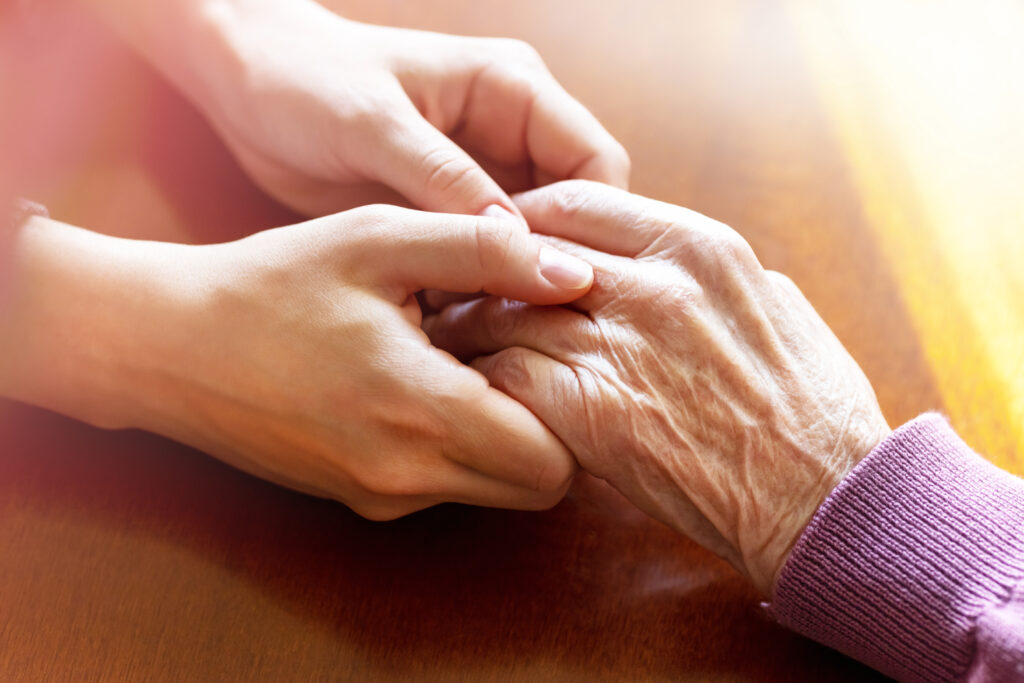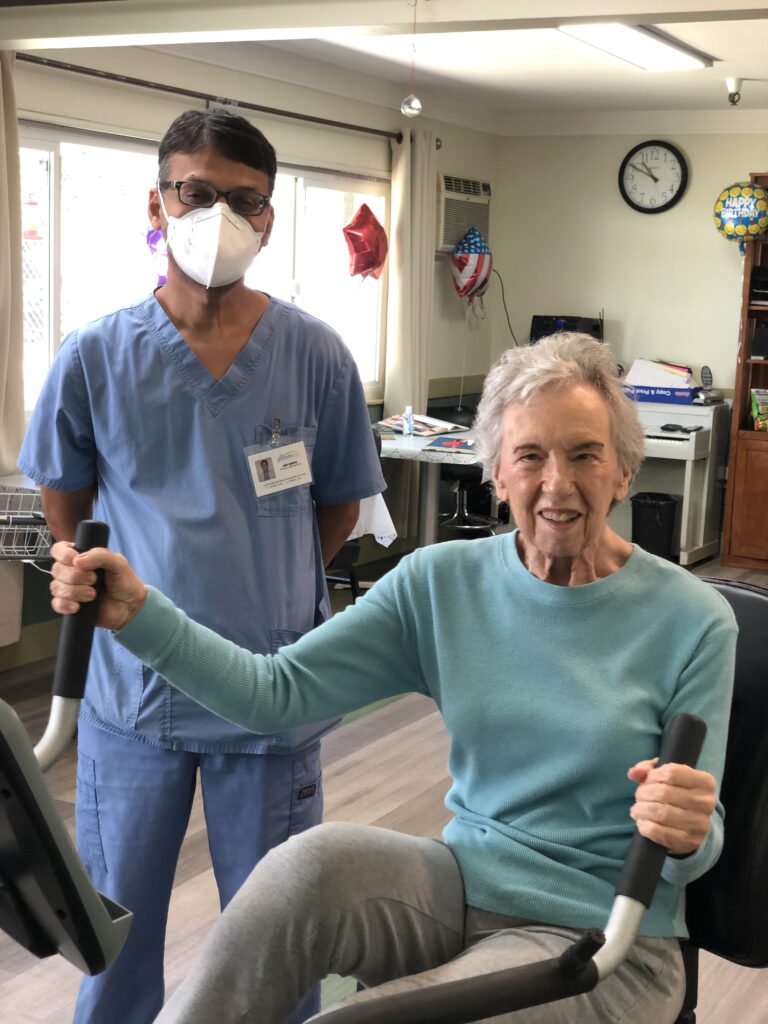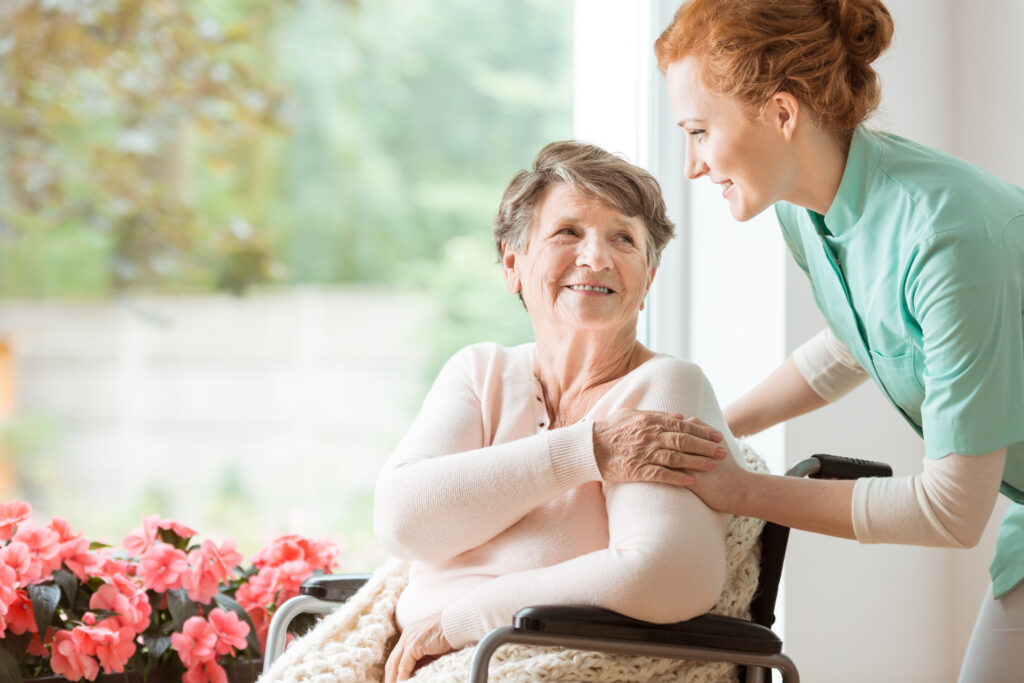Florida Home Care: Common Terms, How to pay for Home Care, Licensing and Questions to ask
Florida is a very popular destination for aging adults due to its ideal weather and laid-back lifestyle, which attracts people from everywhere to enjoy their later years and retirement. In fact, Florida home care can be an excellent option if your loved one requires some assistance. Furthermore, Florida locals benefit from discounts on various attractions and enjoy a diverse cultural landscape. Additionally, the state has no income tax; thus, housing options are both affordable and abundant.
Many individuals typically prefer to age in place for as long as possible rather than transition into a senior living community. Nevertheless, as time passes, the challenges of aging may cause living at home to become increasingly difficult. While people often think of senior care as synonymous with nursing homes, it is important to emphasize that those facilities are certainly not the only option. Rather, the primary focus of Florida home care is to keep individuals healthy and safe.
Specifically, home care caregivers assist with activities of daily living (ADLs) and provide personal care and monitoring, much like they would receive in a long-term care community, all while allowing seniors to remain in the comfort of their own homes.
Fortunately, the state of Florida has several well-known cities where aging adults can seek care and senior living options that fit their needs, including Miami, Tampa, Orlando, Jacksonville, Tallahassee, Naples, Fort Lauderdale, and many others. Ultimately, a majority of senior citizens in Florida prefer to age in place with the help of home care rather than move into a senior living community, thereby ensuring they maintain their independence and quality of life.

What is home care in Florida?
Home Care
Home care, also known as in-home care, is particularly suited for seniors who may only require some basic assistance at home. Moreover, care plans can be customized for each individual to address their unique needs. The home aides play a vital role by supporting activities of daily living (ADLs), which include medication reminders, assistance with bathing, and help with eating. In addition, home care may serve as an excellent option for family members who must leave town or simply need a break from caring for their loved one. Furthermore, home care aides bring a sense of personalization by providing companionship, socialization, and a vital sense of connection.
Home Care and Aging in Place
When considering home care services, they include assistance with activities of daily living (ADLs) specifically tailored to each client’s needs. Additionally, these in-home aides may offer personal care and monitoring, similar to what individuals would receive in a long-term care community. Importantly, all of this support occurs while seniors remain in the comfort of their own homes, allowing them to maintain their independence and quality of life. Overall, home care services facilitate aging in place, ensuring that individuals receive the care they need in a familiar environment.

How do you know it may be time for Home Care?
What are the signs to look for?
Have you noticed that your loved one is spending less and less time managing their hygiene or personal appearance? For instance, they may stop brushing their teeth or allow their facial hair to grow in an unkempt fashion when they did not do so before. Additionally, are they going for longer periods in the same clothing or neglecting their previously scheduled eating habits? Since grooming and hygiene fall under the umbrella of activities of daily living (ADLs), a personal care assistant may help with these important tasks.
Moreover, is your loved one forgetting things more frequently? Typically, people forget things from time to time; however, if you notice that they are forgetting simple tasks they normally perform regularly, this may indicate that assistance is necessary.
Furthermore, it is not uncommon for elderly adults to experience trouble walking, getting up from a seated position, or needing help getting in and out of bed. Signs like these can indeed be dangerous; in fact, the risk of a fall increases as mobility declines. Consequently, the aide of a home care caregiver may assist with moving around the house safely.
Be sure to check the state of their home
Lastly, did you notice that your loved one’s home is in disarray? If they have usually shown signs of tidiness or regular cleanliness, yet now the home appears disheveled and dirty, this could indicate a problem. In-home aides can assist with normal household maintenance tasks, such as dusting and sweeping, cleaning the kitchen, or doing laundry. Overall, recognizing these signs can help determine when additional support is needed for your loved one.
What Assistance do In-Home Care Aides Provide?
Home Care Aides provide a variety of services and assistance. Depending on the individuals condition, elderly adults may require different types of care.
Services included in home care:
- Companionship
- Socialization
- Cognitive stimulation
- Medication reminders
- Grocery shopping
- Transportation
- Respite for family caregivers

Often times, people think of nursing homes or retirement homes as the only places for senior care. As we’ve discussed earlier, there are multiple care options. And even within home care, there are levels of care suited for an individuals needs. The specific services offered in home care will vary state by state.
What are the different Home care options?
Companion Care
- Companions actively spend time with older adults, providing essential companionship. This support is especially relevant for individuals who live alone or do not leave the house due to cognitive impairments or frailty.
- Additionally, these companions are there to look after the person, keep a watchful eye, and act as an extension of the individual to assist with mobility and general physical functions.
- Moreover, they may drive the person to appointments, prepare light meals and snacks, and engage in activities to enhance the individual’s quality of life. For instance, they may play games, read, or listen to music together.
- Ultimately, companion care serves as a great way to bring social interaction and assistance to a person who might otherwise spend long periods of time alone.
Personal Care Assistant
- Personal care assistants provide companionship as well as assistance with activities of daily living (ADLs) such as non-medical personal care tasks like toileting, dressing, grooming, and bathing.
- Furthermore, they can help with grocery shopping and meal preparation, ensuring that individuals maintain a balanced diet.
- In addition, a personal care assistant can help ease family difficulties. For example, if a family caregiver must leave town or be away from home overnight, the caretaker can stay with the individual and monitor their well-being while assisting as needed.
- Moreover, if a spouse is too heavy for the individual to manage safely, a personal assistant can be a valuable asset in helping the individual move without risking injury.
- It is important to note that these care assistants cannot perform any medical care, as their focus is solely on non-medical support.
Home Health Care
- Home health care represents the only type of home care associated with skilled nursing or any therapy services.
- In fact, this type of care involves a much higher level of medical care and therapy, addressing complex health needs.
- To ensure quality, home health aides must possess a nursing degree or certification, or they must go through specialized training.
- Lastly, it is crucial to understand that standard home care services (excluding home health care) do NOT involve any medical care, focusing instead on daily living support and assistance.


Laws regulations
Licensing
- Senior care in the state of Florida is regulated by The Florida Division of Health Quality Assurance, which helps ensure the quality of services provided.
- Furthermore, Florida requires agencies to adhere to specific policies and procedures to guarantee their State Home Care License and Private Duty Accreditation. Thus, providers must apply through The Agency for Health Care Administration (AHCA) to obtain the necessary licensing to operate in home care.
Grievances
- Additionally, the agency should have a comprehensive plan in place for families to voice any grievances or complaints they may have.
- Importantly, the person receiving care possesses extensive rights pertaining to the services provided, which helps protect their well-being.
- Moreover, the individual under care has the right to file a complaint with the agency regarding several critical issues:
- Their treatment and the care provided.
- The failure of the agency to deliver certain necessary care.
- The lack of respect for their property and/or person.
- Furthermore, individuals have the right to participate in discussions about their care, be informed about their treatment options, and consent to or refuse care both in advance of and during treatment. Overall, these rights empower individuals and ensure they receive the quality care they deserve.
How much does hime care in Florida cost?

The average monthly cost of home care in Florida is about $4,800, which is slightly lower than the national average of $4,960.
Florida home care is the most expensive in the south eastern region of the United States. This is mostly do to the large population of aging adults.
- Florida: $4,800
- Georgia: $4,300
- South Carolina: $4,450
- Alabama: $3,825
- Mississippi: $3,820
Costs will vary depending on what region of the state you live in, even where you live within your county or city.
- Naples: $5,775
- Crestview: $5,510
- Sebastian: $5,115
- Miami: $4,200
Questions and inquiries about home care
Agency Information
- Is the agency RN operated?
- Is the agency a franchise or locally owned and operated?
- Is the agency licensed by WA State Department of Health?
- Is the agency licensed for both home care and home health?
- Does the agency have liability insurance?
- Can the agency respond to you 24/7?
Caregiver Information
- Are employees licensed, bonded & insured? Or are they independent contractors?
- Does the agency test skills, conduct behavioral interviews and verify caregiver credentials?
- Are caregivers required to have current certifications for First Aid, CPR, and TB?
- Are caregivers provided continuing education/training?
- Can authorized individuals monitor care and make requests online in real time?
- Does the agency offer caregiver replacement when the “fit” may not be right?
Documentation and Supervision
- Does an RN/MSW/Care Manager conduct a free home care assessment?
- Does an RN/MSW/Care Manager create a home care plan?
- Does an RN/MSW/Care Manager supervise the caregivers?
- Do caregivers receive client orientation before arriving at a client’s home?
Policies and Cost
- Can services be cancelled with a 4-hour notification?
- Does the agency offer flexible scheduling, custom care plans, and a continuum of care?
- Does the agency have weekly or monthly minimums?
- What is the hourly minimum per shift?
- Does the agency offer home care discounts?
- What is the required deposit?
- Will the agency accept long-term care insurance?
Resources and Links – Florida
Florida Department of Elder Affairs Administers human service and long term care programs for Florida’s elders age 60 and older and their caregivers. Services include Home Care Program, Nutrition Programs, Home Delivered Meals, Congregate Meals, Nutritional Counseling, Family Caregiver Support Program, Adult Family Care, Personal Care Management Program, Money Management Program Financial Assistance, Congregate and Supportive Housing, Nursing Home Ombudsman Program, transportation, home repairs and employment.
Department of Children and Families Florida Abuse Hotline The Florida Abuse Hotline serves as the central reporting center for allegations of abuse, neglect, and or exploitation for all children and vulnerable adults in Florida. Confidential reports.
American Indian Tribes and Tribal Organizations is a Care Giver Program, Case Management, Home Health Services, Adult Protective Services, Emergency Response Systems, Employment Services, Financial Services, Legal Assistance, Home Repair, Home Modification, Information and Referral/Assistance, Home Delivered Meals, Congregate Meals, Personal Care, Sr. Center Programs
Eldercare Locator This is a great resource to search for specific care in specific counties and cities. This database is a nationwide resource that connects older Americans and their caregivers with trustworthy local support resources. Connect with services such as meals, home care or transportation, or a caregiver education or respite from caregiving responsibilities. The Eldercare Locator is a public service of the Administration on Aging (AoA), an agency of the U.S. Administration for Community Living.
Medicare provides a search feature to find & compare providers near you, most senior housing and care providers are included on CareAvailability.com. Find & compare plans in your area. Determine if you qualify for premium savings
Medicaid offers information on how to apply for Medicaid, eligibility criteria, links to local state offices, and additional resources.
The Alzheimer’s Association is the leading voluntary health organization in Alzheimer’s care, support and research. Whether you are living with Alzheimer’s or caring for someone with the disease, information and resources are available.
Questions and inquiries about home care
Agency Information
- Is the agency RN operated?
- Is the agency a franchise or locally owned and operated?
- Is the agency licensed by WA State Department of Health?
- Is the agency licensed for both home care and home health?
- Does the agency have liability insurance?
- Can the agency respond to you 24/7?
Caregiver Information
- Are employees licensed, bonded & insured? Or are they independent contractors?
- Does the agency test skills, conduct behavioral interviews and verify caregiver credentials?
- Are caregivers required to have current certifications for First Aid, CPR, and TB?
- Are caregivers provided continuing education/training?
- Can authorized individuals monitor care and make requests online in real time?
- Does the agency offer caregiver replacement when the “fit” may not be right?
Documentation and Supervision
- Does an RN/MSW/Care Manager conduct a free home care assessment?
- Does an RN/MSW/Care Manager create a home care plan?
- Does an RN/MSW/Care Manager supervise the caregivers?
- Do caregivers receive client orientation before arriving at a client’s home?
Policies and Cost
- Can services be cancelled with a 4-hour notification?
- Does the agency offer flexible scheduling, custom care plans, and a continuum of care?
- Does the agency have weekly or monthly minimums?
- What is the hourly minimum per shift?
- Does the agency offer home care discounts?
- What is the required deposit?
- Will the agency accept long-term care insurance?
Search other areas for Home Care
Not finding what you’re looking for? Take a look below.
